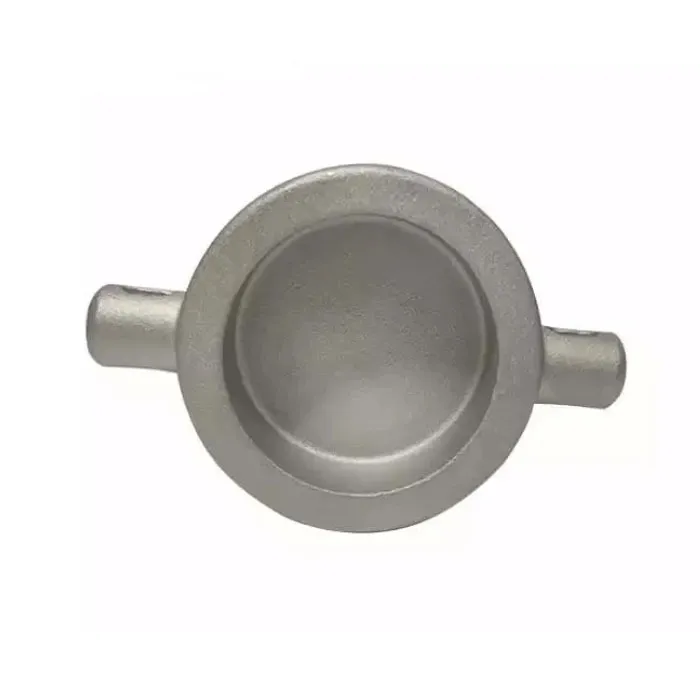What Types of Metals and Alloys Are Typically Used in Investment Casting?
2024-12-05
Investment casting, also known as lost-wax casting, is a highly versatile manufacturing process used to create intricate and precise metal components. It supports a wide range of metals and alloys, making it ideal for applications in aerospace, automotive, medical, and industrial sectors. Here's a breakdown of the typical metals and alloys used in investment casting:
1. Stainless Steel
- Key Features:
- Corrosion resistance.
- High strength and durability.
- Good heat and wear resistance.
- Applications:
- Medical tools, food processing equipment, and automotive components.
Common Grades:
- 304/316 Stainless Steel: Known for corrosion resistance.
- 17-4 PH Stainless Steel: Used for aerospace and high-strength applications.
2. Carbon Steel
- Key Features:
- Cost-effective.
- Excellent mechanical strength.
- Can be heat-treated to improve properties.
- Applications:
- Automotive parts, machinery components, and structural applications.
Common Grades:
- Low Carbon Steel: Used in applications requiring ductility.
- High Carbon Steel: Suited for wear-resistant parts.
3. Alloy Steel
- Key Features:
- Enhanced mechanical properties due to added alloying elements.
- Good tensile strength, toughness, and wear resistance.
- Applications:
- Gears, valves, and tools used in heavy machinery and industrial equipment.
Common Grades:
- Chromium-molybdenum steel (e.g., 4130 or 4140).
- Nickel-chromium steels for improved hardness and corrosion resistance.

4. Aluminum Alloys
- Key Features:
- Lightweight and corrosion-resistant.
- Good thermal and electrical conductivity.
- Easy to machine and finish.
- Applications:
- Aerospace components, automotive parts, and consumer goods.
Common Alloys:
- A356: Widely used in automotive and aerospace parts.
- 6061: Known for good machinability and strength.
5. Copper-Based Alloys
- Key Features:
- Excellent corrosion resistance.
- Good thermal and electrical conductivity.
- High ductility and machinability.
- Applications:
- Plumbing fittings, electrical components, and marine hardware.
Common Alloys:
- Bronze: Used for bushings and bearings.
- Brass: Ideal for decorative and plumbing applications.
6. Titanium Alloys
- Key Features:
- High strength-to-weight ratio.
- Exceptional corrosion resistance.
- Biocompatible, making it ideal for medical applications.
- Applications:
- Aerospace parts, medical implants, and marine components.
Common Alloys:
- Ti-6Al-4V: A popular titanium alloy for aerospace and medical industries.
7. Nickel-Based Alloys
- Key Features:
- High-temperature resistance.
- Excellent corrosion resistance, especially in harsh environments.
- Retains strength and toughness at elevated temperatures.
- Applications:
- Jet engine components, gas turbines, and chemical processing equipment.
Common Alloys:
- Inconel: Used for extreme heat resistance.
- Hastelloy: Known for chemical resistance.
8. Cobalt-Based Alloys
- Key Features:
- Superior wear and corrosion resistance.
- Maintains strength at high temperatures.
- Applications:
- Medical implants, dental tools, and high-wear components in aerospace.
Common Alloys:
- Stellite: Used for cutting tools and wear-resistant parts.
9. Tool Steel
- Key Features:
- Extremely hard and wear-resistant.
- Retains sharpness and strength under stress.
- Applications:
- Cutting tools, dies, and molds for industrial machinery.
Common Grades:
- D2: High wear resistance.
- H13: Popular for hot-work applications.
10. Precious Metals
- Key Features:
- High value, corrosion resistance, and aesthetic appeal.
- Exceptional electrical conductivity.
- Applications:
- Jewelry, electronics, and luxury items.
Common Metals:
- Gold: Used for jewelry and decorative items.
- Silver: Utilized in electronics and ornaments.
- Platinum: Common in medical and industrial applications.
Choosing the Right Metal or Alloy
The selection of the metal or alloy depends on:
1. Application Requirements: Strength, corrosion resistance, heat resistance, or biocompatibility.
2. Environmental Conditions: Exposure to chemicals, moisture, or high temperatures.
3. Cost Considerations: Balancing material properties with budget constraints.
Conclusion
Investment casting supports an extensive range of metals and alloys, each tailored to specific performance needs. Whether it's the lightweight properties of aluminum, the strength of steel, or the corrosion resistance of titanium and nickel-based alloys, the versatility of investment casting makes it a preferred choice across numerous industries.


